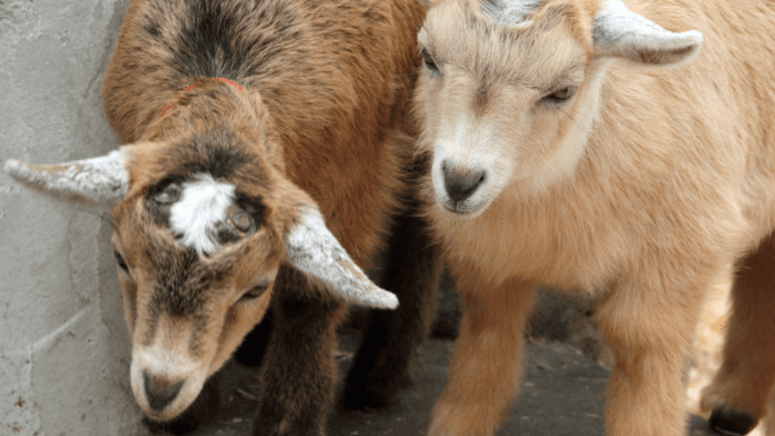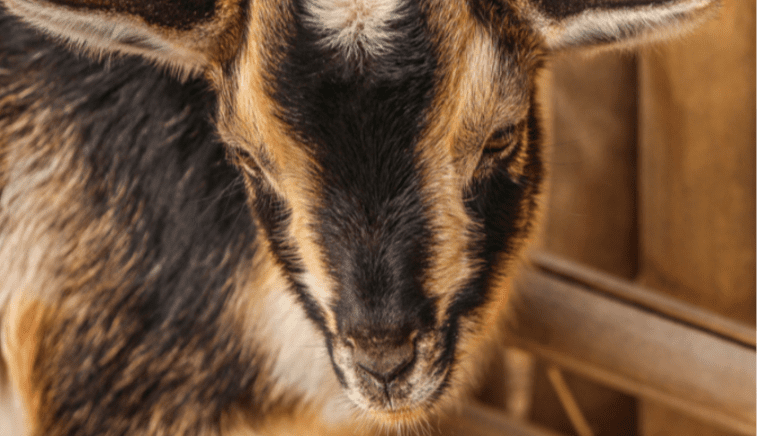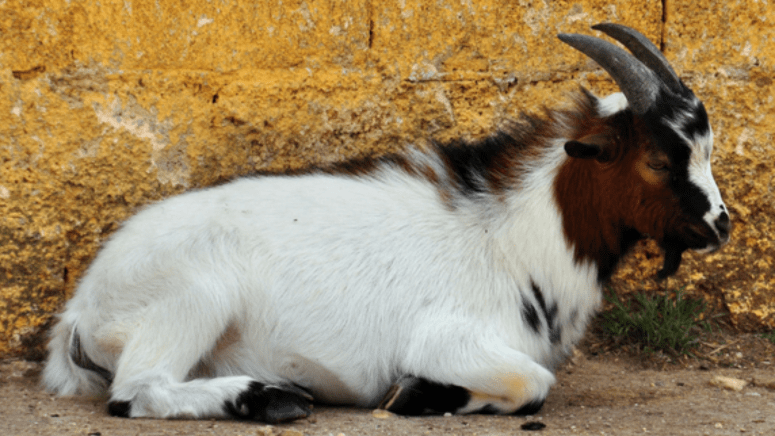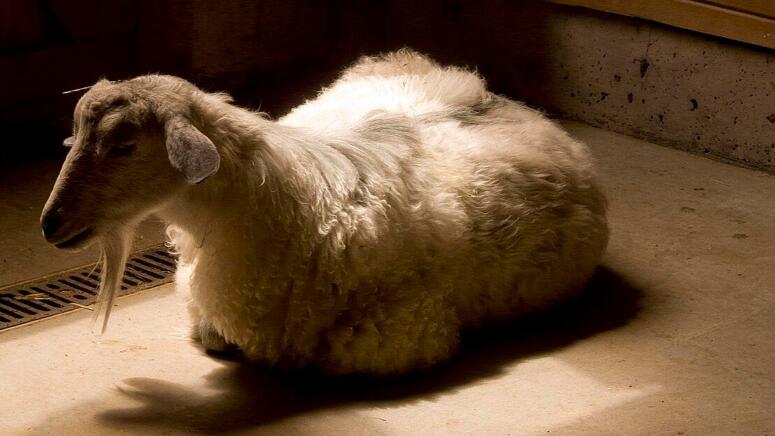Posted by Jennifer Sartell, Professional Homesteader & Blogger, Thu, Apr 12, 2018; updated Tue, June 13, 2023
I believe wholeheartedly that anyone should be able to enjoy a farm experience if they have the desire. Homesteading should not be reserved only for people who can afford large pieces of property.
Farm animals, if raised correctly with proper fencing, regular bedding changes and the right number of animals for the space, could theoretically be kept in even the smallest of yards.
Neighborhood laws and association rules aside, a few bantam hens or quail for eggs, a small garden, and a couple of small dairy goats make less noise and cause fewer odors than outdoor cats and barking dogs, in my opinion.
While small goat breeds are convenient for people with a small yard, they should not be reserved just for those with limited space. Mini breeds can be a smart addition to any size farm.
We’ve only ever raised large-breed goats—mainly Nubians and Alpines, which can weigh up to 200 pounds or more. We also raise Angoras, which are more of a medium-size breed weighing in at 75–150 pounds.
In my own experience, even the 30-pound difference between our Angora goats and our Nubians is notable; I have a much easier time managing the Angoras than I do the Nubians. Two of our goats weigh more than I do, and they’re strong! If they want something, there’s little I can do to physically stop them (thankfully, sweet feed goes a long way when it comes to training a goat).
While I love our big lugs, with their floppy ears and large personalities, I’ve often wondered if smaller breeds aren’t a better way to go.

6 Reasons to Raise a Mini Breed of Goat:
- They’re Cute. It’s hard to deny that miniature goats are absolutely adorable. Even if you’re not interested in goats’ usefulness, they make great pets and are stinking cute!
- They Eat Less. More than once, after a trip to the feed store to purchase grain for our large-breed goats, I’ve re-examined the receipt and thought, “Maybe we should get minis instead.” Smaller bellies need less food, which can ease the strain on your pocketbook.
- They Need Less Space. As we mentioned above, smaller goats can do well on a smaller piece of pasture.
- They Need Less Fencing. Less pasture means less fencing that has to be put up. You can also use shorter fencing, which is less expensive. Small breeds do fine with smaller housing as well. A recycled doghouse will provide nice shelter for a mini breed.
- They are Easier to Handle. Goats can be willful, and a 50-pound goat likes to play and jump just as much as a 200-pound goat. Smaller breeds cause less wear on fencing and buildings. They can also be great for children or people with health restrictions.
- They are Less Expensive to Buy. Smaller goats cost less. Breeders of mini breeds often don’t charge as much as what you’d pay for some of the larger breeds. You should be able to find a quality homestead mini goat for anywhere from $50 to $200, depending on the lineage.
Most Popular Mini Goat Breeds
Nigerian Dwarf Goat

The Nigerian Dwarf Goat is a West African dairy goat breed raised for milk production. They are excellent milkers for their size. They weigh an average of around 70 pounds (that’s 15 pounds less than our Golden Retriever) and stand on average about 21 inches high.
Nigerian Dwarfs can produce up to a half gallon of milk a day. And unlike other mini breeds they have full-size teats, which makes hand-milking easier. Smaller teats can be hard to grip, causing milking to become a hand-cramping chore.
If you’re looking for a mini breed, chances are the Nigerian Dwarf is the complete package.
Pygmy Goat (aka Cameroon Dwarf Goats)

The Pygmy is also an African breed. They tend to weigh a bit more than the Nigerian Dwarf, up to 85 pounds. This short, stocky breed is meant for meat.
Because they are not high milk producers and have smaller teats, most often they are raised as pets or companion animals. They are also used to cross-breed with larger goats to create smaller versions of the larger breed.
Popular Crosses
Mini Nubians Goats
Mini Nubians are gaining popularity in the United States. The Nubian produces the highest butterfat content of all milkers; however, the members of this large breed are known for their high energy levels.
It’s becoming a popular practice to cross Pygmies with Nubians to create smaller versions of the dairy breed. The resulting generations often produce high-butterfat milk and boast the same adorable floppy ears as the Nubians.
Pygora Goats

A Pygora goat is a cross between a Pygmy and an Angora. The resulting goat can produce a cashmere-like coat that is very valuable to hand spinners. The coat is combed out (similar to a shedding dog), collected and spun into a luxurious yarn.
Kinder Goats
While Mini Nubian Goats are bred specifically for milk production, Kinder goats were bred as dual-purpose farm companions. For instance, Kinder Goats are a great meat breed in addition to their excellent dairy production.
Nigora Goats
Nigora goats are a cross between Nigerian Dwarf Goats and Angora Goats, creating a beautiful long haired small goat breed. Nigoras are known for their milk and fiber production and feature a wide range of coat colors like solid black, white and tan.
If you’re at all interested in raising goats, I encourage you research these adorable mini breeds. Their tiny size might fit into your life and homestead perfectly!
If you already raise these fantastic farm companions, consider treating them with new Farmhouse Favorites™ Mini Goat treats, formulated specifically for small breeds.
Author Profile: Jennifer Sartell
Jennifer Sartell is the primary caretaker of all animals on her and her husband’s farm in Fenton, MI. With a passion for living a simple life, Jennifer enjoys creating art, taking in nature, raising animals and has developed a deep appreciation for homesteading. Jennifer and her husband, Zach, currently raise goats and poultry.
Her vast amount of experience on the farm includes, but is not limited to: milking, shearing, hoof trimming, vaccine administration, assisting in animal births, dehorning, egg collecting, chick and turkey hatching, feeding, watering, etc. She can also cook a mean farm-to-table meal and when the day is done has documented and photographed their day on the farm.
More Blogs by Jennifer Sartell
- https://www.mannapro.com/homestead/caring-for-pregnant-does-part-2
- https://www.mannapro.com/homestead/caring-for-pregnant-does-part-1
- https://www.mannapro.com/homestead/preparing-caring-for-goats-in-winter
- https://www.mannapro.com/homestead/dairygoatbreeds
- https://www.mannapro.com/homestead/preparing-the-kidding-stall-part-2
- https://www.mannapro.com/homestead/a-guide-to-buying-a-new-goat
- https://www.mannapro.com/homestead/raising-kids-dehorning-wethering
- https://www.mannapro.com/homestead/milking-a-goat
- https://www.mannapro.com/homestead/raising-fiber-goats-101
- https://www.mannapro.com/homestead/hoof-care-for-goats
- https://www.mannapro.com/homestead/putting-together-a-goat-birthing-kit
- https://www.mannapro.com/homestead/preparing-the-kidding-stall-part-1
- https://www.mannapro.com/homestead/breaking-down-the-goat-diet
- https://www.mannapro.com/homestead/birthing-goat-kids
- https://www.mannapro.com/homestead/dealing-with-goat-scours
- https://www.mannapro.com/homestead/feeding-baking-soda-to-your-goats
- https://www.mannapro.com/homestead/pros-cons-and-facts-about-raising-turkeys
- https://www.mannapro.com/homestead/best-breeds-for-raising-chickens-with-children
- https://www.mannapro.com/homestead/a-guide-to-small-goat-breeds
Feature Products

